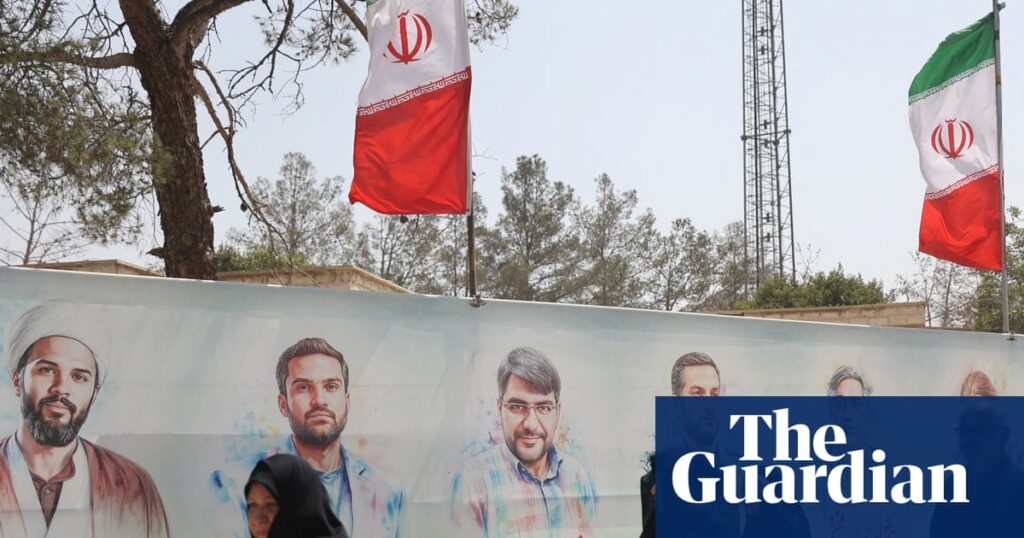Russia could back an extended six-month deadline for its ally Iran before European powers reimpose sweeping United Nations sanctions over Tehran’s refusal to allow UN inspectors back into nuclear sites after the Israeli-US assault in June.
France, Britain and Germany – known as the E3 – have long threatened to trigger a “snapback” of sanctions at the UN security council before 18 October, when a largely defunct nuclear deal struck 10 years ago between Tehran and major powers expires.
Western officials have said they would wait until the end of August to decide whether Iran was serious about further negotiations, with a six-month extension only on the condition that Iran showed seriousness about the talks with the US.
Senior officials from Iran and Europe’s top three powers met in Geneva on Tuesday to discuss the western demand. Iran’s deputy foreign minister for legal and international affairs, Kazem Gharibabadi, said after the meeting that Tehran remained committed to diplomacy and a mutually beneficial solution.
One E3 official said: “We are going to see whether the Iranians are credible about an extension or whether they are messing us around. We want to see whether they have made any progress on the conditions we set to extend.”
The Iranian president, Masoud Pezeshkian, spoke with Vladimir Putin over the weekend and there were tentative reports that Russia was willing to back the six-month extension with the possible approval of the US. A Russian draft resolution making the six-month deadline extendable is already being circulated at the UN headquarters in New York.
Russia and China – two of the security council’s five permanent members – cannot veto the snapback if Europe decides to take the step.
Europe has been largely excluded from the five rounds of US-Iranian bilateral talks that Trump started and which came to an abrupt halt when Israel began what became a 12-day assault on Iran’s nuclear sites. The snapback mechanism is the only way back into the talks process for European powers that were central to the original nuclear deal, but have found themselves increasingly edged out of the diplomacy.
The European conditions include the resumption of inspections, the accounting for Iran’s large stock of highly enriched uranium, and resuming diplomatic talks with the US. The Iranian supreme leader, Ayatollah Ali Khamenei, this week ruled out direct talks with Washington, a formula that, however, keeps open the possibility of talks with a mediator, either from Oman or Norway.
The E3 have threatened to trigger the snapback by the end of August, a move that would minimise the risk of Russian obstruction, since Moscow will assume the month-long presidency of the UN security council in September.
A counter draft resolution put forward by Russia reportedly entails an extension of the deadline so that “snapback” cannot be triggered for at least six months. That six-month period would be extendable under the Russian proposal.
The true state of Iran’s nuclear programme is not known, although Donald Trump says it has been obliterated. The White House sacked the Pentagon defence official who produced a more nuanced assessment.
Iran admits it had been enriching uranium to up to 60% purity, a short step from the roughly 90% of weapons-grade, as a reprisal for the US leaving the nuclear deal in 2018. Iran insists it had no intention of making a nuclear bomb.
Iran has severely criticised the International Atomic Energy Agency (IAEA), a UN body, for, in Tehran’s view, giving credence to US claims that Iran may be hiding a secret military nuclear programme. But the IAEA said while it could not guarantee Tehran’s nuclear programme was entirely peaceful, it had no credible details of a coordinated weapons programme in Iran.
The IAEA has reopened talks with Iranian officials on the terms for the resumption of inspections, and the talks in Geneva will have a strong focus on whether Iran is prepared to meet its duties under the nuclear non-proliferation treaty to resume inspections.
Iran claims that the damage to its nuclear site requires a new plan with the agency, and this will be more restrictive.

